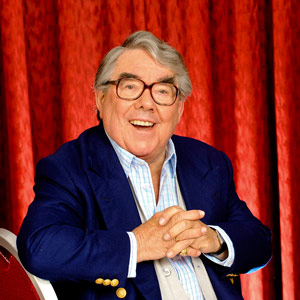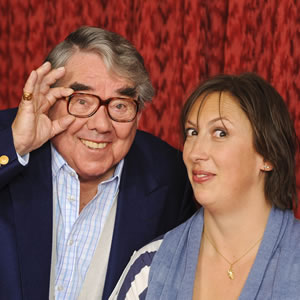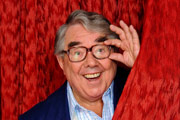Ronnie Corbett interview

As Ronnie Corbett approaches 60 years in showbusiness, his new two-part documentary series Ronnie Corbett's Comedy Britain explores his own career, and the larger world of British comedy, through his eyes.
You say in the programme that you got your break relatively late - in your late 30s. Did you always have an ambition to be a comedian and if so, when were you first aware of it and what do you think sparked the desire in you to make people laugh?
I had a desire for comedy sparked by a youth club pantomime I did in Edinburgh. I played the wicked aunt and I was suddenly in an atmosphere that I found very comfortable. From that day on I was determined to have a go at it.
A lot of things happened in between because I did my national service in the air force for two years and worked for the civil service, but in the back of my mind there was always a desire to perhaps one day be a professional performer/entertainer/comedian.
You've had a long and successful career that has spanned a number of decades. What have been the highlights of your career?
It's very difficult to select highlights but obviously The Two Ronnies was a major part of British television during our lives. The Saturday night shows at that length, with their breadth of skills, design, writing and music was a major television show by any standards, so I would say my relationship with Ronnie Barker is the highlight of my career, and my spell with Danny La Rue is also very important. If you're talking about television though, it's definitely The Two Ronnies, Sorry!, No - That's Me Over Here! and various sitcoms along the way, but mainly The Two Ronnies.
Of course my extremely happy marriage is the spine of the whole thing. I have a happy, contended life with two lovely daughters, so that makes it all rather special.
In Ronnie Corbett's Comedy Britain you take a look at the history of British comedy and meet many comedians. What did you learn whilst making the programme? And did anyone or anything really make you laugh?
All the people I talk to in Ronnie Corbett's Comedy Britain I am fans of. They all have varying skills in various different departments and it was a treat to meet them all and blather away to them. They all made me laugh whilst making the programme but mainly it was a pleasure to be with them and spend time with them.

In the programme Miranda Hart says that your humour inspired her. Who inspired you?
I was inspired by a variety of people. As a child I used to love and watch Dave Willis who is a Scottish comedian, and Jack Radcliffe and Dougie Byng who I saw in pantomime in those days. I was a great fan of the great American vaudevillians who used to come to the palladium in the 50s and 60s - Bob Hope, Jack Benny, Milton Berle; and in this country Max Wall and Max Miller.
How do you feel comedy has changed over the years?
Comedy does change, everything changes over the years. I think now there are a good deal more stand-ups than there used to be. People aren't as keen to engage with other performers and do sketch type humour anymore, that has probably changed. A certain amount of theatricality is now missing. People don't dress up like they used to. People arrive at the venue in the clothes they go to work in, they perform in those clothes and if you have a drink afterwards they are still in the clothes. There's no kind of costume.
Who are your favourite comedians of today?
I wouldn't like to pick my favourites but Miranda Hart is enormously funny in the way she works with other people and being truly comical. There are major, major clever people about and very brave ones as well, so it was a great pleasure to do the programme.

